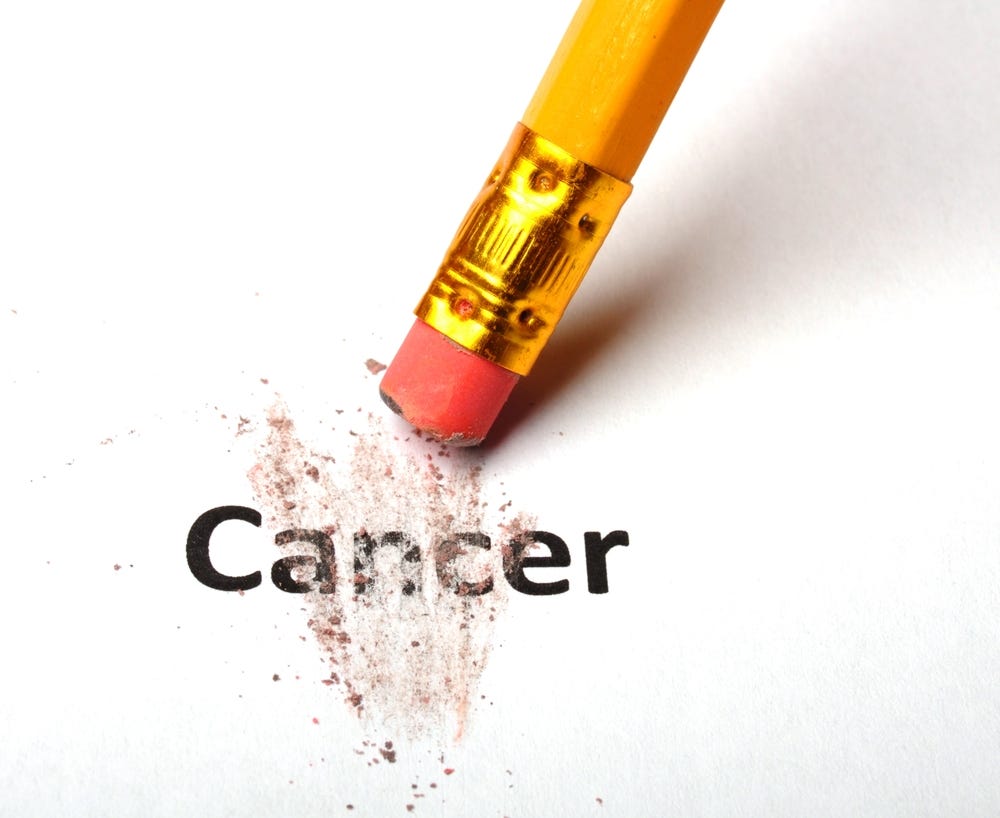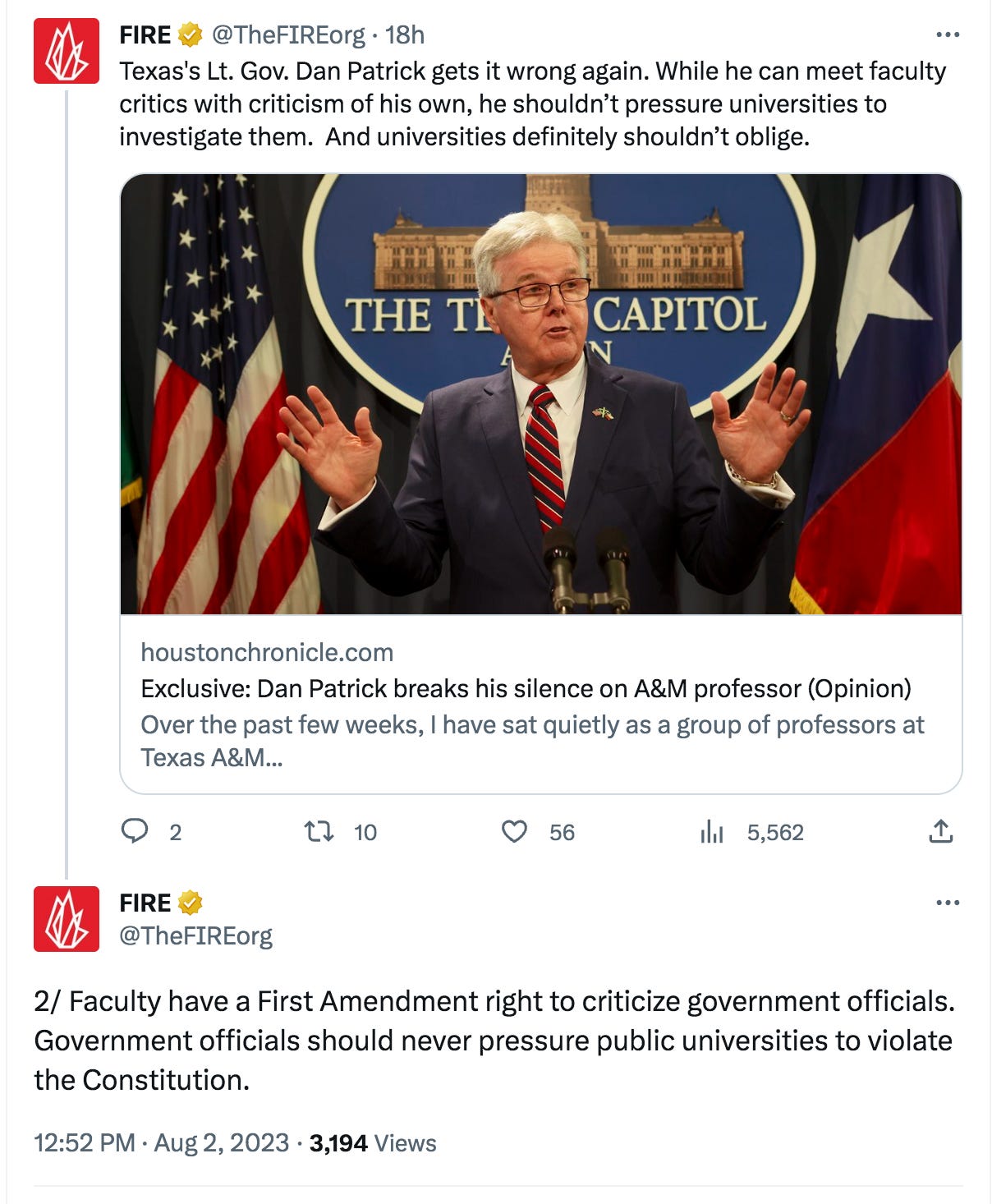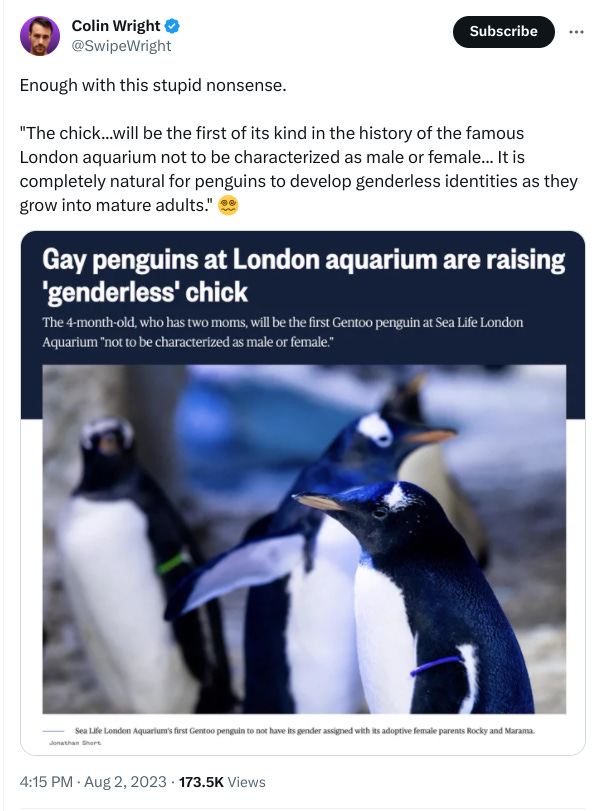E-Pluribus | August 3, 2023
Academic freedom, then and now; but curing cancer is good, too, presumably; and a win for freedom of association.
A round-up of the latest and best writing and musings on the rise of illiberalism in the public discourse:
James Huffman: What History Teaches Us about The Importance of Academic Freedom
With academic freedom facing challenges these days, it’s important to be familiar with its history. James Huffman at Quillette reviews a 74-year-old book, the Primer of Intellectual Freedom, with that in mind.
[James Bryant] Conant also urges universities to ensure “that we have a variety of views represented and that in the classroom our teachers be careful scholars rather than propagandists.” [University of Chicago president Robert Maynard] Hutchins also emphasized the value of opinion diversity, deploring the fact that it had become “fashionable to call anybody with whom you disagree a Communist or a fellow-traveler.” Numerous recent studies show that the opinion diversity Hutchins advocated has not been realized. In 2017, Jonathan Haidt reported that 60 percent of faculty were far left or liberal, while only 13 percent were far right or conservative. A 2023 Heterodox Academy report found a similar disparity. And today, the trend is to label opponents racist, white supremacist, or transphobic.
The excerpt from Conant’s book is prefaced by part of a 1949 letter from Grenville Clark, a senior member of the Harvard Corporation, to Harvard benefactor Frank B. Ober. Ober was threatening to discontinue his financial support of the college if its professors were allowed to voice opinions “hostile to our own country.” His ire was particularly roused by English professor John Ciardi, who participated in a rally opposing anti-Communist legislation and astronomy professor Harlow Shapley, who chaired a 1949 Cultural and Scientific Conference for World Peace, alleged by Ober to be a communist front. Clark tells Ober that to discipline these professors “would be to repudiate the very essence of what Harvard stands for—the search for truth by a free and uncoerced body of students and teachers.”
In support of this, Clark cites Conant’s 1936 speech at the Harvard Tercentenary Celebration: “we must have a spirit of tolerance which allows the expression of all opinions however heretical.” He also appeals to Harvard President Charles W. Eliot’s 1869 inaugural address, in which Eliot declared that “the winnowing breeze of freedom must blow through all [Harvard’s] chambers.” This metaphor recurs later in the book, in an 1894 statement of the University of Wisconsin Board of Regents exonerating economics professor Richard T. Ely, who was accused of “heretical and seditious” conduct for “interfering in a strike of the printing trade.” Their response: “Whatever may be the limitations which trammel inquiry elsewhere, we believe that the great state university of Wisconsin should ever encourage that continual and fearless sifting and winnowing by which alone the truth can be found.”
Clark also reminds Ober of some of the ways in which Harvard upheld free speech during the period of “easy fears” following the First World War. For example, then Harvard president A. Lawrence Lowell defended Professor Zechariah Chafee, who had fallen under suspicion for siding with the defendants in a 1919 Espionage Act trial in which several Russian immigrants were sentenced to 20 years in prison for distributing leaflets critical of the United States’ intervention in the Bolshevik revolution. Lowell “took an unequivocal position in defense of the professor’s right to espouse an unpopular cause” and the complaint was dismissed.
Read the whole piece.
John D. Sailer: When Curing Cancer Isn’t the Priority
The potential pernicious impacts of diversity, equity, and inclusion (DEI) at various institutions have been well documented, but John Sailer at City Journal reports that DEI has even come after cancer research of all things. Sailer obtained documents showing that candidates for cancer research positions are being asked to demonstrate “inclusive excellence” to be hired on.
[S]DSU’s “building inclusive excellence” form . . . symbolizes a remarkable statement of the university’s priorities and demonstrates how even the most high-stakes areas of scientific research must now genuflect to social justice.
The form, published on the National Association of Scholars website, requires candidates to describe their “inclusive excellence” contributions across eight categories, which include “demonstrated knowledge of barriers for underrepresented students and faculty within the discipline,” “demonstrated commitment to teaching and mentoring underrepresented students,” “demonstrated commitment to integrating understanding of underrepresented populations and communities into research,” and “research interests that contribute to diversity and equal opportunity in higher education.”
[ . . . ]
[S]DSU’s requirement . . .overshadows what should be the main priority in cancer research—namely, curing cancer. Screening candidates for their “inclusive excellence” risks penalizing scientists who focus almost exclusively on their discipline. Such screening selects against precisely the kinds of candidates whom universities should hire: scientists obsessively focused on their research.
SDSU isn’t alone in this. DEI evaluations are deeply entrenched throughout academia, even in the medical sciences. In 2020, Seattle’s Fred Hutchinson Cancer Research Center conducted a cluster hire of faculty who could “demonstrate a commitment” to “diversity, antiracism, and inclusion.” Per the research center’s guidelines, such contributions might include an “understanding of the importance of diversity, equity, and inclusion, and related topics such as antiracism, decolonization, bias mitigation, [and] social justice.”
Read it all.
Madison Rehbehn: Penn State Agrees to Protect Free Association Rights of Students
Penn State has a bit of a checkered record on free speech as of late, but Madison Rehbehn at The College Fix reports that, with a little encouragement from the Foundation for Individual Rights & Expression, Penn got it right with free association for its on-campus student organizations.
FIRE’s interest in the policy came after the College Independents (pictured), a campus group, sought to remove a disruptive student from the club.
The student organization is nonpartisan and promotes “the respectful discussion and exchange of ideas, and we bring together students studying a wide variety of fields, including political science, economics, engineering, and business,” according to its description.
The group wanted to remove a member who “repeatedly sent unsolicited text messages to an organizational group chat,” according to FIRE.
An administrator originally said no, before allowing the group to remove the student. FIRE sought to ensure that all groups had their rights protected.
[ . . . ]
FIRE had told Penn State that it “must allow student groups to determine their own membership—which includes the right to admit, expel, or discipline members at the group’s sole discretion.”
“Please know that we deeply appreciate Penn State’s recent efforts to protect free expression on its campus,” Piro wrote in its letter. “We suspect the administrator’s quick retraction here was a result of those efforts, but we would appreciate confirmation.”
Penn State’s affirmation of the policy came via a July 12 letter to the group. “Any recognized student organization at Penn State is able to make its own membership decisions,” student leadership director Jeffrey Zapletal told the College Independents.
Zapletal told the group that it should work with administrators to handle conflict with other students as well.
Penn State officials have reversed course or apologized three times in the past 15 months to ultimately protect free speech, FIRE wrote in its victory blog.
Read it all here.
Around Twitter
The Foundation for Individual Rights & Expression (FIRE) on Texas Lt. Gov. Dan Patrick’s latest comments regarding Texas A&M:
The story is unconfirmed, but Dr. Jeremy Shaw weighs in on the principle at stake in a situation involving a person who was denied medical care for expressing an opinion:
And finally, Colin Wright is fed up:










